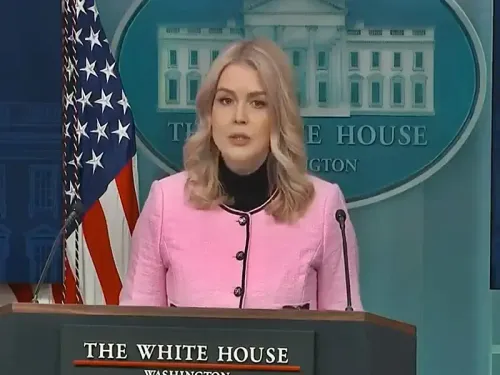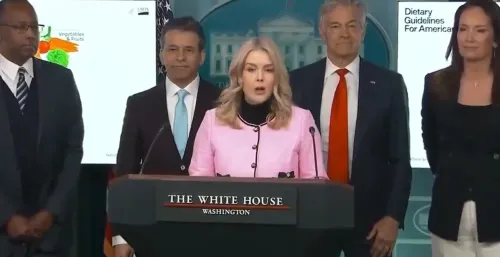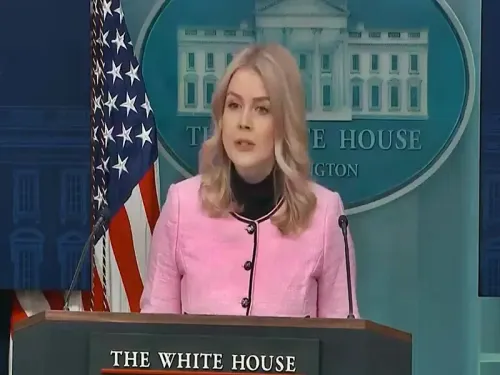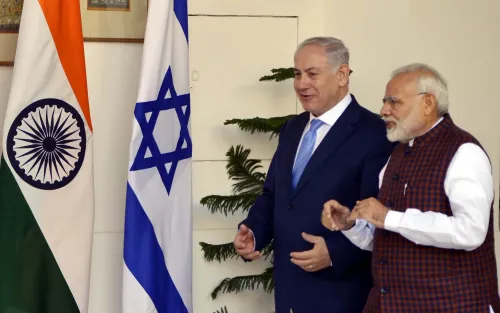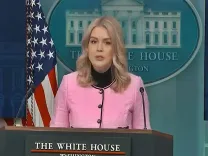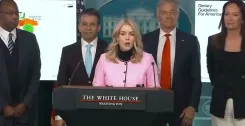Is Cryptocurrency Bringing Trump and Pakistan Together?
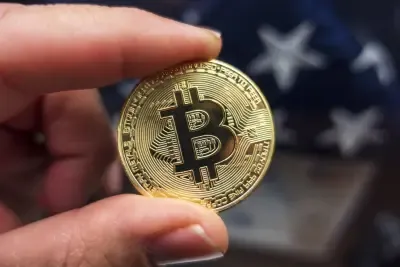
Synopsis
Key Takeaways
- Trump's interest in cryptocurrency is reshaping U.S.-Pakistan relations.
- World Liberty Financial aims to empower entrepreneurs and facilitate investments.
- Pakistan shows high levels of cryptocurrency adoption.
- Concerns over governance and security risks are prevalent.
- Trade between the U.S. and Pakistan has significantly increased.
New Delhi, Nov 11 (NationPress) The foreign policy of US President Donald Trump is increasingly influenced by his personal fascination with cryptocurrency, which has resulted in a significant shift in Washington’s perspective toward Pakistan. Previously regarded mainly through the lens of security and counterterrorism, Pakistan is now a central figure in Trump’s vision for World Liberty Financial, a global economic ecosystem focused on digital assets and alternative financial systems, as reported in an article by the Pakistan Observer.
Trump’s vast real estate holdings and financial connections have always influenced his governance style; his readiness to advocate for policies that merge his personal brand with national strategy is well-documented. This blend became especially pronounced during his re-election campaign and subsequent policy directions, particularly concerning the international expansion of American financial influence through innovative tools like cryptocurrency, the article asserts.
Under Trump’s administration, the acceptance of digital currencies, especially the initiative to create the World Liberty Financial platform, has assumed strategic significance. This platform aims to empower American entrepreneurs, stimulate international investment, and navigate around conventional banking obstacles. In this setting, Pakistan has emerged as an unexpected yet vital ally, as further articulated in the article.
Data from the Pakistan Software Export Board and global blockchain indices show that Pakistan ranks among the top five countries worldwide for cryptocurrency adoption. This trend has been accelerated by governmental support for fintech, substantial diaspora remittances, and a youthful population eager for financial innovation.
According to Chainalysis, the crypto adoption rate in Pakistan soared by 711 percent between 2021 and 2023, with annual transactions exceeding $25 billion. The Trump Administration’s shift toward Pakistan is, therefore, more than just a diplomatic maneuver or a regional power play, as highlighted by the article.
Concerns have been raised by European Union policymakers and other strategists regarding Trump’s approach to utilizing cryptocurrencies as instruments of statecraft, which could pose governance and security challenges. The capacity for swift, anonymous transactions raises alarms about illicit financing, state-backed sanctions evasion, and the erosion of AML frameworks.
Reports from the Financial Action Task Force (FATF) categorize Pakistan as a “jurisdiction under increased monitoring,” complicating oversight and enforcement due to crypto transactions. Still, the Trump Administration remains committed. By adopting digital assets and alternative payment methods, especially through platforms like World Liberty Financial, the U.S. can regain economic dominance without resorting to military interventions or complex treaties. In a 2025 White House briefing, Trump described Pakistan as a “key partnership incubator for new digital freedoms.”
The economic implications of this policy shift are already visible. Bilateral trade between the United States and Pakistan rose by 11 percent in the first half of 2025, with mobile payments and crypto-linked remittances accounting for over $1.2 billion in value transfer—three times the amount in 2023, based on internal estimates from the Commerce Department. Pakistani fintech companies, many backed by American venture capital, have expanded into the Gulf and Southeast Asia, benefiting from lower transaction costs and enhanced interoperability, as noted in the article.
For the Trump Administration, these outcomes underscore the importance of digital finance in modern diplomacy. Nevertheless, skepticism remains. Congressional oversight committees have begun investigations into the nature and beneficiaries of U.S.-Pakistan financial agreements, focusing on individuals and companies connected to the president. Non-governmental organizations like Transparency International have also spotlighted this issue, as further elaborated in the article.
“However, Trump’s strategic calculus remains constant. The President continues to position World Liberty Financial as a leader in a new era of American global influence, defined not merely by traditional metrics of power but by expertise in digital liquidity, cross-border empowerment, and economic flexibility,” the article concludes.


